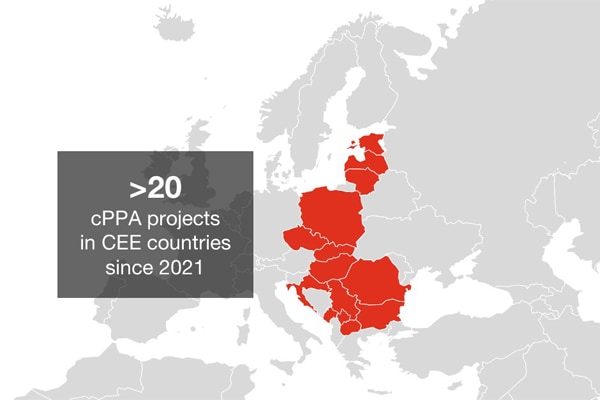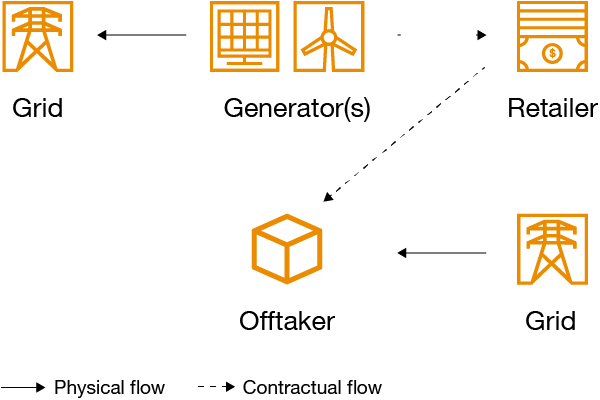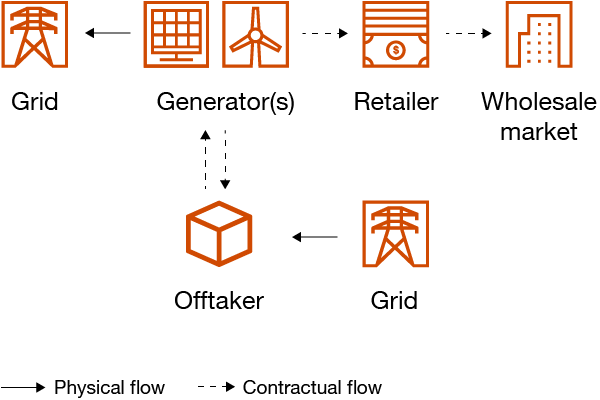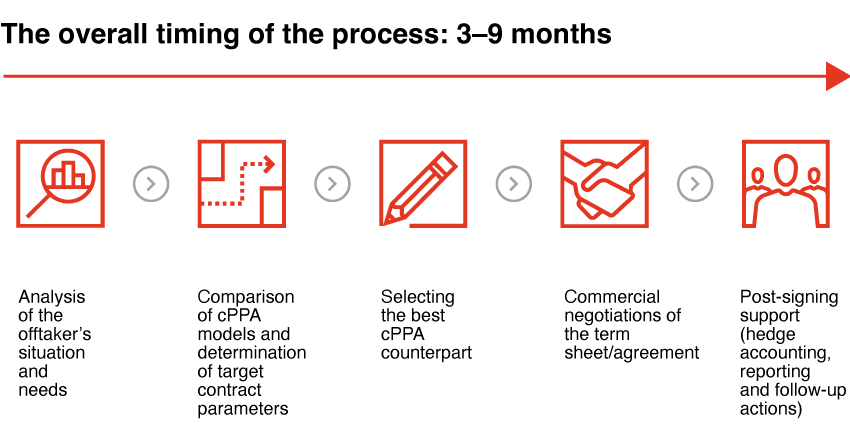Situation:
The Client was a main player from the retail sector with significant electricity consumption and over 8000 connection points. The Company has expressed ambitious ESG plans targeting reduction of emissions in scope 1 and 2 by 25% by 2026 and even more ambitious targets in following years.
Challenges:
[Complex ownership] The complexity of the structure in the franchisee business model and the ownership of the stores proved a challenge in structuring the cPPA for the Company. Prior to contracting PwC the company was leaning towards a physical PPA solution as something more fit for the business goals.
[Volatile market conditions] Furthermore the company was pursuing cPPA in the times of most volatile electricity price changes in the Polish market that were partially caused by Russia-Ukraine military conflict.
Solution:
PwC as lead advisor prepared development of a strategy to support the purchase of electricity from RES - using cPPA and support in its operationalization. As a result of our initial work the Company has selected virtual PPA as a leading solution. Furthermore PwC has advised end-to-end on securing cPPA contracts in course of negotiations that took many months to complete. Due to this project:
- Client has successfully signed two cPPA for the volume above 2 TWh over the life of the contracts
- Undersigned contracts which price was > 30% lower than those sourced
- Fulfillment of ESG plans
- Ensure long term hedge of electricity price




